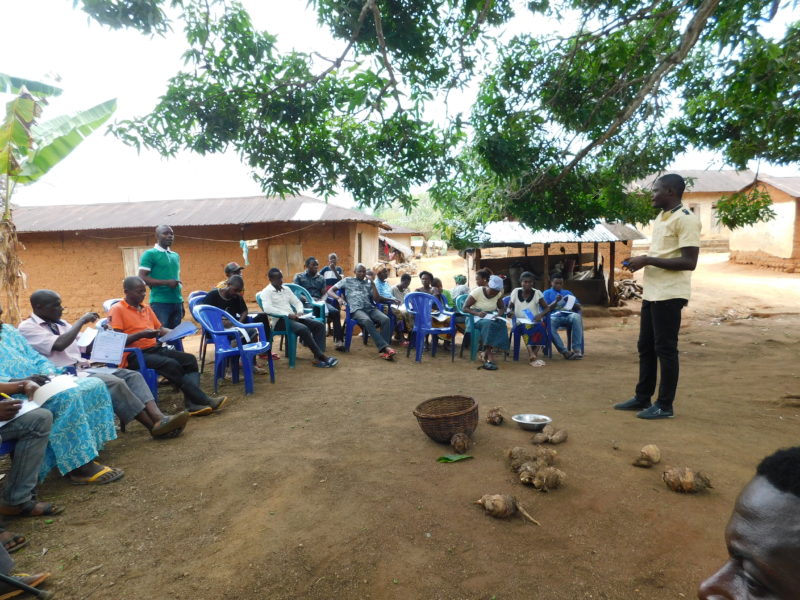The Nigerian Conservation Foundation (NCF), through support from the United Nations Office for Project Services (UNOPS) and Global Environment Facility’s Small Grant Programme (GEF-SGP), appear to be re-defining forest management, conservation of landscape and rural livelihoods in selected forest-edge communities of Ebok, Kabakken and Ebranta in Boje, Boki Local Government Area of Cross River State.

In 2017, NCF, with the support of GEF-SGP, set up the Community-Based REDD+ programme (CBR+) to promote activities that boost poverty eradication, promotion of improved crop varieties and yields, gender empowerment, biodiversity conservation and climate change mitigation and adaptation.
Through the funding, Ebok, Kabakken and Ebranta communities cultivated two acres of land respectively with improved cassava stem cuttings, set-up cassava processing mills, cultivation and domestication of Afang Gnetum africanum by community members and harvesting of Non-Timber Forest Products (NTFPs) – bush mango Irvingia gabonensis as part of efforts to reduce forest loss through improved agricultural practices. Proceeds of the harvest were shared among women and youth in the communities to supplement their income.
In addition to the cassava, vegetable and NTFPs cultivation, the three communities commenced the cultivation of cocoayam on two acres each using improved farming methods and multiplication of planting materials (mini-set technology). In order to restore and cope with the impact of landslide-affected community forests, 4,000 tree seedlings raised by the beneficiary communities were planted to restore degraded forests.
To prevent hunting of animals in the wild, poultry (turkey) and snail farms were established in the three communities to enhance food security.
The estimated beneficiaries are 36 households comprising about 250 individuals and their income levels have improved by 10%. Fifteen forest eco-guards made up of five representatives from each community have been established. The eco-guards, along with the Community Council of Chiefs, make up the natural resources governance committee.
Mr. Tony Attah, the facilitator for community forest bye-laws at the training, applauded NCF for the laudable strides made and called on the people to take full advantage of the opportunities that the CBR+ project presents. He also expressed hope that the initiative could be expanded in the near future.
Part of the trainings focused on forest laws, ownership (government, private and local), delineation of forest boundaries, designing clear rules for access to forests resources and provision for monitoring and sanctioning violators, recognition of the rights of the community to help achieve improved forest outcomes.
Cross River State has over 50% of the forest cover in Nigeria. Akamkpa, Etung and Boki comprise the largest share of this forest cover.
CBR+ is a partnership between the UN-REDD Programme and the GEF Small Grants Programme to deliver grants directly to indigenous peoples and communities to empower them to fully engage in the design, implementation and monitoring of REDD+ readiness activities, and develop experiences, lessons, and recommendations at the local level that can feed into national REDD+ processes.
CBR+ supports community-based projects that complement UN-REDD National Programmes, national REDD+ readiness processes and strategies. Currently in its pilot phase, CBR+ is being implemented in six countries: Cambodia, Sri Lanka, Panama, Paraguay, Democratic Republic of the Congo and Nigeria.
Community forest, according to the NCF, contributes to the sustainable livelihoods of millions of rural people living in developing nations. Thus community involvement has the potential to improve the effectiveness, efficiency and provide more co-benefits from REDD+ project, adds the group.
